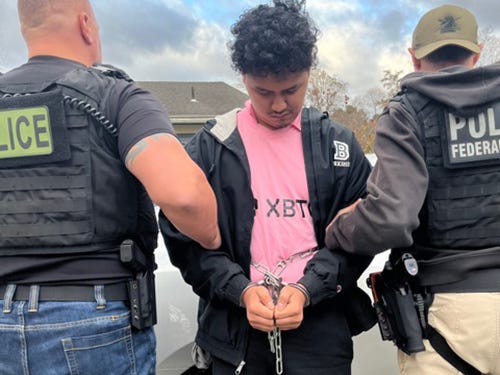How a small town police department helped an alleged child rapist evade ICE
A basic courtesy call to the Feds is a violation of sanctuary policy
Listen to the testimony at the Natick Selectman meeting last week and you can’t help but hear the repeated lie that the proposed “Welcoming Communities Policy” (sanctuary community declaration) is a re-affirmation of existing law.
The theory goes that the much cited 2017 Lunn decision by the highest court in Massachusetts ties municipal and state entities from any doing “anything” to help federal immigration authorities.
Well, actually, that is just not true.
Lunn v. Commonwealth relates only to the power of law enforcement to hold an individual beyond the time otherwise dictated by the court (and I appreciate the civil liberties argument to curtail the power of the state on this matter). In a practical sense, the Lunn case means that the local cops can’t hold you for a longer than the law allows, even if ICE has requested the local authorities to do so.
That is why Natick Police Chief Hicks said last week an “ICE detainer... doesn't mean anything.”
[BTW I’m not a lawyer, too smart to go to law school]
But almost every sanctuary city declaration moves way beyond basic compliance with Lunn to include a passive-aggressive non-cooperation clause.
Sanctuary policy advocates never acknowledge the conflation of arrest and co-operation because they don’t want you to comprehend the nuance and significant limitations of the Lunn decision.
“No employee of the Town shall inquire about or collect any information regarding the citizenship or immigration status of any individual unless Federal Laws or the laws of the Commonwealth of Massachusetts require municipal employees to do so…perform the functions of an immigration officer, nor shall the Town use Town funds, resources, facilities, property, equipment or personnel to directly assist in the enforcement of federal civil immigration laws.”
These provisions bar collection of information and direct assistance and far exceed the narrow prohibition against arrest as dictated by the Lunn decision.
So in practical terms, for instance, if ICE issues a detainer for someone held by the Natick Police Department (or any sanctuary community) and the Natick Police realize that an induvial is likely to be released on bail later day, the Natick PD is prohibited from even informing the federal government.
A basic courtesy call to the Feds, is a violation of the “Welcoming Communities Policy”
“Hey you know that child rapist your looking for, that guy, ahhhh Roberto Whatshisname. Yeah, the judge probably gonna grant him bail later today, I can’t hold him beyond that, so you might wanna meet him in the parking lot just after lunch, when we plan to spring him.”
Nope can’t make that call. Violation!
Does that actually happen? Yes, take the case of “Mynor Stiven De Paz-Munoz, 21, an unlawfully present Guatemalan national charged in Massachusetts with rape of child by force, rape of a child, and indecent assault and battery against a minor, Nov. 12 in Great Barrington.”
Great Barrington is a sanctuary community, so when ICE sent a immigration detainer to Great Barrington PD for Mr. De Paz-Munoz, the “ICE detainer was ignored and De Paz-Munoz was released on bail before ERO Boston officers could respond to take him into custody.”
De Paz-Munoz, an unlawfully present Guatemalan national faces charges: rape of child by force, rape of a child, and indecent assault and battery against a minor.
With any policy there is always the ability of the administrative state to lean one way or another in applying a sense of reasonableness to the application of justice. A 58 year old woman with a spotless driving record gets pulled for going 65 in a 60, no ticket. A 23 year old male with a history of multiple moving violations and a prior 6 month bit for street level dealing, gets pulled for going 65 in a 60, he gets a ticket.
But under sanctuary policies that level of selective enforcement or rather selective cooperation is prohibited and we’re all less safe because of it.


